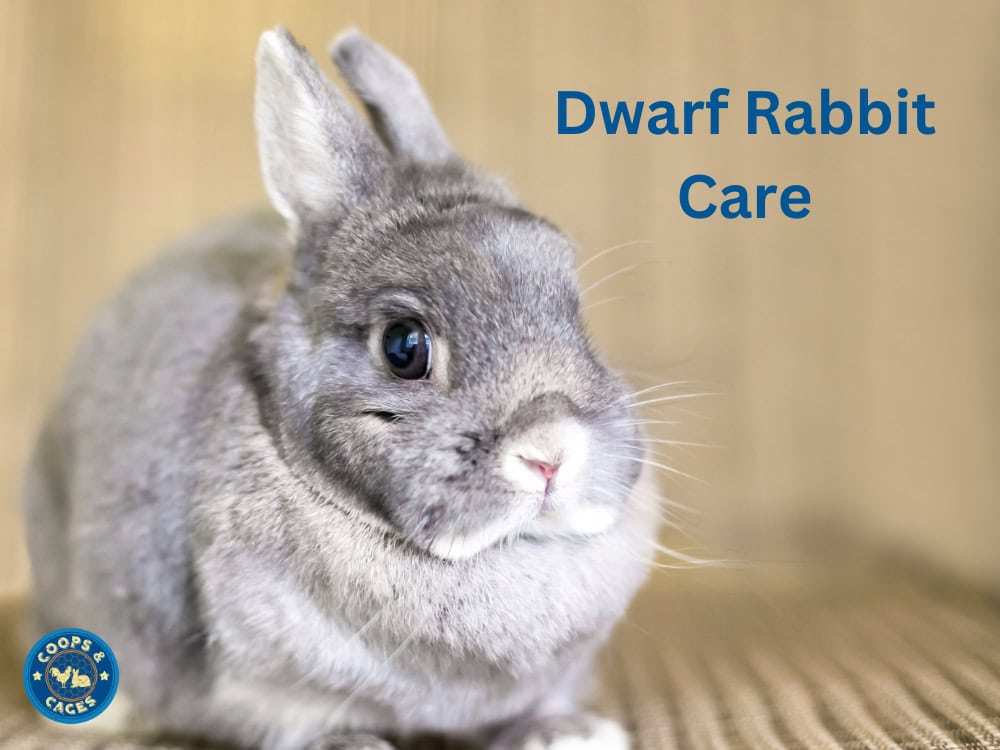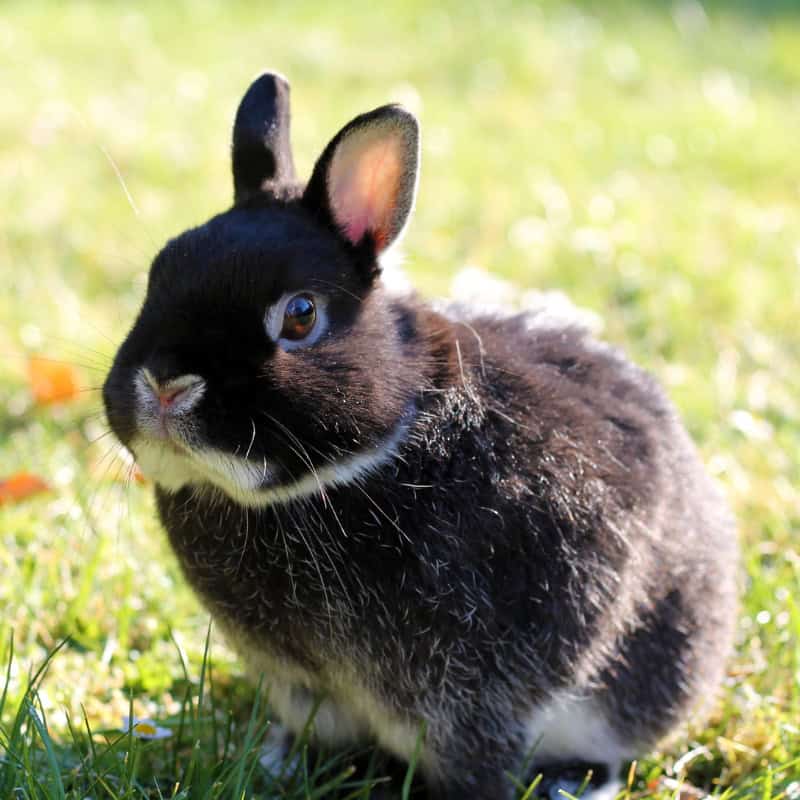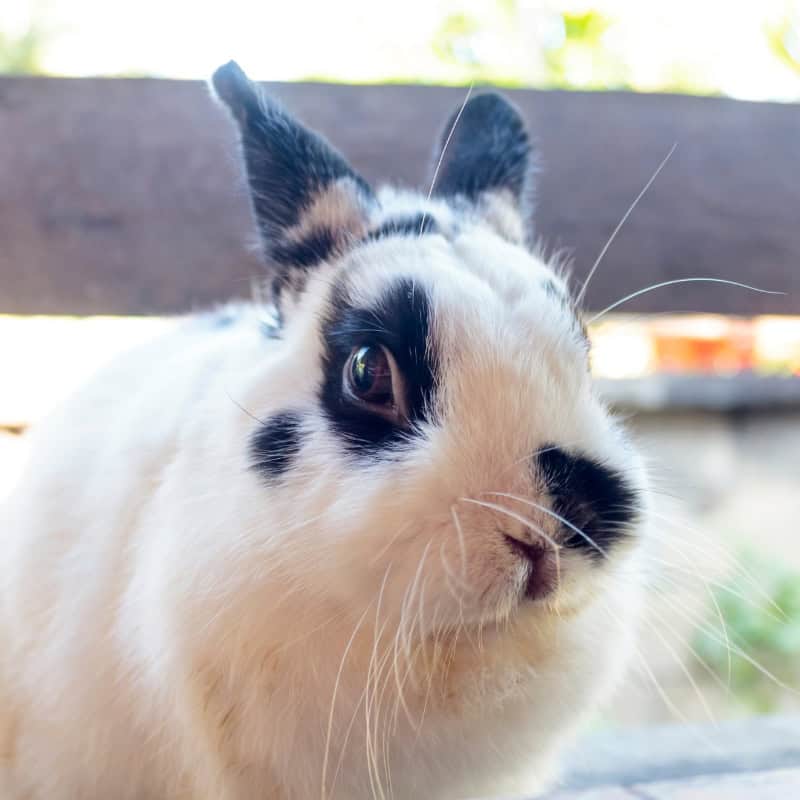Rabbits
Dwarf Rabbit Care: A Guide for Pet Owners
Dwarf rabbits are adorable, compact pets with unique needs that differ from regular-sized rabbits. Whether you’re already a proud owner or considering bringing a dwarf rabbit into your home, this guide will help you understand their specific care requirements.
From hutch requirements to feeding, handling and health concerns, dwarf rabbits require a bit more attention due to their delicate nature. With a longer lifespan and distinct personalities, they make wonderful companions when cared for properly.
Read on to learn how to provide the best care for your dwarf rabbit and decide if one is the right pet for you.
What are Dwarf Rabbits?
Dwarf rabbits refer to very small breeds of domestic rabbits, typically weighing between 0.5 to 1.5kg when fully grown.
These tiny rabbits are popular as pets due to their small size, compact bodies, and adorable features. Unlike regular-sized rabbits, dwarf rabbits are characterised by their short ears, round faces, and petite frames, giving them a cute, almost baby-like appearance even into adulthood.
Dwarf rabbits have been selectively bred by humans to be much smaller than their wild counterparts, and they do not occur naturally in the wild. Their breeding origins trace back to the early 20th century in Europe, particularly in the Netherlands, where they were developed for their small stature and charming appearance.
One of the most recognised dwarf breeds is the Netherland Dwarf, which weighs about 0.5 to 1.2kg and has a round body with small, upright ears. Another example is the Dwarf Hotot, known for its white fur and distinctive black “eyeliner” markings around the eyes. The Mini Rex, though not a true dwarf, is a small breed with velvety fur and weighs slightly more than some true dwarf breeds.
Size and Space Requirements
Dwarf rabbits may be small, but they still need adequate space to move around and exercise, which is essential for their health and happiness.
Unlike regular-sized rabbits, dwarf rabbits can thrive in slightly smaller outdoor hutches, but it’s important to remember they still require room to hop, stretch, and explore. A well-designed hutch should allow for plenty of movement and have a safe, enclosed area for sleeping.
For dwarf breeds, a hutch measuring around 120cm x 60cm x 60cm or larger is ideal. This ensures they have enough space to run and engage in natural behaviours like digging and chewing.
While they require less space than larger rabbits, dwarf rabbits can be very active and energetic. Providing additional platforms or ramps inside the hutch can help create more vertical space, allowing your rabbit to explore different levels.
Outdoor hutches for dwarf rabbits should be weatherproof, have a sleeping area raised off the ground, and have secure latches to keep predators out. Adding a rabbit run connected to the hutch can provide even more space for your dwarf rabbit to roam safely.
At Coops and Cages, we offer a range of quality hutches perfect for dwarf rabbits, providing a safe, comfortable home that supports their need for space and movement.
Feeding and Nutrition
Feeding and nutrition for dwarf rabbits differ slightly from those of regular-sized rabbits, primarily due to their smaller size and delicate digestive systems. Dwarf rabbits have higher metabolic rates, meaning they need a well-balanced diet that provides enough energy while preventing obesity.
Their primary food source should be high-quality hay, which is essential for maintaining healthy digestion and wearing down their teeth, which continuously grow.
Compared to larger rabbits, dwarf breeds need smaller portions of pellets, as too many can lead to weight gain. A small handful of high-fibre pellets each day is sufficient.
Fresh vegetables should also be a regular part of their diet, with leafy greens such as cos lettuce, parsley, and cilantro being good options. However, the portions should be smaller than what you would offer a larger rabbit—about a cup of greens per day for a dwarf rabbit weighing around 1kg.
One of the main risks for dwarf rabbits is overfeeding, which can lead to obesity and other health issues. Monitoring their weight and adjusting their diet accordingly is key to keeping them healthy. Fresh water should always be available, and treats should be limited to prevent unnecessary weight gain.
By tailoring their diet, you can help your dwarf rabbit live a long, healthy life.
Handling and Socialisation
Handling and socialising dwarf rabbits requires extra care compared to regular-sized rabbits because of their small and delicate nature.
Due to their tiny size, dwarf rabbits can be more fragile, making them more prone to injury if not handled correctly. When picking up a dwarf rabbit, always support their body with one hand under their chest and the other under their hindquarters. Avoid holding them too tightly, as this can make them feel uncomfortable or stressed.
Dwarf rabbits tend to be more skittish than larger rabbits, as they can feel more vulnerable. Building trust through gentle handling and slow movements is crucial for their socialisation. Spend time with your rabbit daily to help them grow accustomed to your presence and touch. Let them come to you rather than forcing interaction, as this fosters a sense of security.
Because of their size, dwarf rabbits can easily be stressed by loud noises or sudden movements, so a calm and quiet environment is essential for their well-being.
Health and Lifespan
Dwarf rabbits have specific health needs that differ from regular-sized rabbits due to their small size and genetic traits.
One of the most common health concerns for dwarf breeds is dental issues. Because of their compact skulls, their teeth may be misaligned, leading to malocclusion, where the teeth don’t wear down properly. This can cause discomfort, eating difficulties, and the need for regular dental check-ups.
Another potential issue for dwarf rabbits is obesity. Despite their small size, they can easily gain weight if overfed or not given enough exercise. Monitoring their diet and providing ample space for activity are crucial in preventing this.
Additionally, their small frames make them more susceptible to injury, so careful handling and a secure living environment are essential.
On the positive side, dwarf rabbits tend to have longer lifespans than larger breeds, often living 8 to 12 years with proper care. This makes them long-term companions, but it also means you need to be prepared for their extended care needs as they age.






Thanks! A most interesting article for me!
Recently a dwarf rabbit was found outside my gate – lost or escaped. It seems determined to lick my skin (hands, arms, legs or feet). Does this mean something is missing from diet?!?!